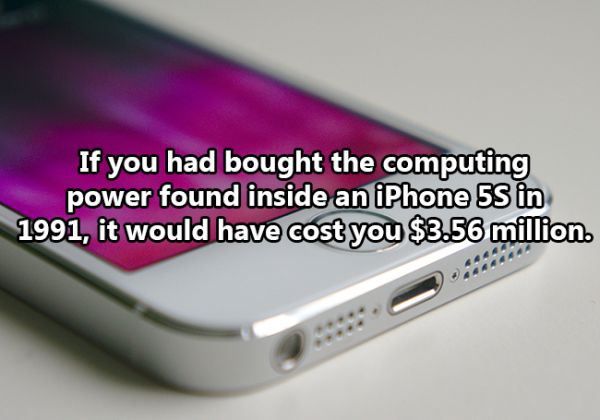reimplementing a PDP-10/x on an FPGA
I had the upgrade z80 card that did the same and doubled the memory. I don’t remember compatibility issues with it, but mine was an aftermarket update.
Half the Apple ][s at my high school were actually Oranges.
I put a disc in my optical drive yesterday for the first time in years… it felt weird…
Yes! The lost world of 8 bit computer knockoffs.
I owned a TRS-80 clone. The Dick Smith System 80.
…alongside lay an ancient CRT monitor, whose cracked screen still bore the ghostly text that was burned into it long aeons ago: ‘You have died of dysentery.’

(Not sure how true it is. Would not be too surprising.)
Melanie Griffith. MEOW!
it wasnt a Cray tablet, but the Tadpole was a RISC sparc laptop - http://www.computinghistory.org.uk/det/32324/Tadpole-SPARCbook-3/
mucho desirable for about 30 minutes…
Oh my.
The other thing to remember is that the GS had two commonly used graphics modes.
One was 16 color 320x200. Great for games, except when the designers threw up their hands and said. “Oh. It’s like EGA”, ignoring the fact that the colors could be chosen from a 4096 color palette.
The other was 4 color 640x200. Most of the “serious” apps used this mode, dithering for 16 colors. The combination of the dithering and the non-square pixels was less than elegant
Contrast this to the mac, which was limited to 512x384, but had square pixels, and a culture of graphics design which made everything look elegantly simple.
The GS did have a great sound chip, and when graphics took advantage of the 12 bit palette, the games were pretty cool. No hardware accelerated sprites, though, unlike the Amiga and Atari ST.
Tadpole made quite a few nice portables. They also made the legendary Alphabook, which I have never seen IRL.
I think we started out with the regular 80 column card, and then acquired the extended 80.
Can you believe that these graphics were better than what had come before?
If it looks like that after being in the woods for 30 years, imagine how long it lasts in a landfill.
Elegant. Right.
IIRC, the floating-point package was in the ROM, and there were different ROM versions. So, depending on the vintage of your ///, your programs would produce different results. This was very hard to explain to the economic professor who hired me to write his simulations.
It could be worse. It could be some of those crappy “degradable” plastics that tend to get their characteristics compromised with time.
I made a mistake of using some such bags for storage. Finding after few years that their tensile strength dropped to almost zero was a rather rude surprise.
Now imagine a similar scenario, this time with structural polymers on some old gear. Whether you are a collector or just want to get the thing working, this would make you mad like a cut snake. It’s bad enough what the polymers do naturally, some of those black rubbery screw-on casings of connectors tend to become brittle as hell after just a few years.
I see you’ve compiled your own kernel.
Now your skills are complete.
Compiling the kernel is the easy part.
…don’t ask why I know…
This is classic. I started with the Apple //c so I was always a pariah. On the plus side, it was basically a complete //e with the good stuff. On the negative side, basketball backboard monitor, not expandable worth a damn, and pointless (for my uses anyway) “portability”. It even had a handle! It was the dawn of the “all external upgrades” Apple.
Including the external modem, which exposed a heinous serial port bug in early //c models that would garble some of the incoming text. I just thought that was normal for a month (I had no idea how modems worked, maybe it was like radios, there is always some static, right?)
Since we seem to be doing this, I’ll bite. I started on a ][+ with an aftermarket (I think) 48K memory expansion, and a green monochrome Zenith Monitor. This was the family computer until we bought a second-hand //e many years later.
Standout games (for Me):
How on Earth does Mark Turmell not have a Wikipedia Page?
This topic was automatically closed after 5 days. New replies are no longer allowed.

